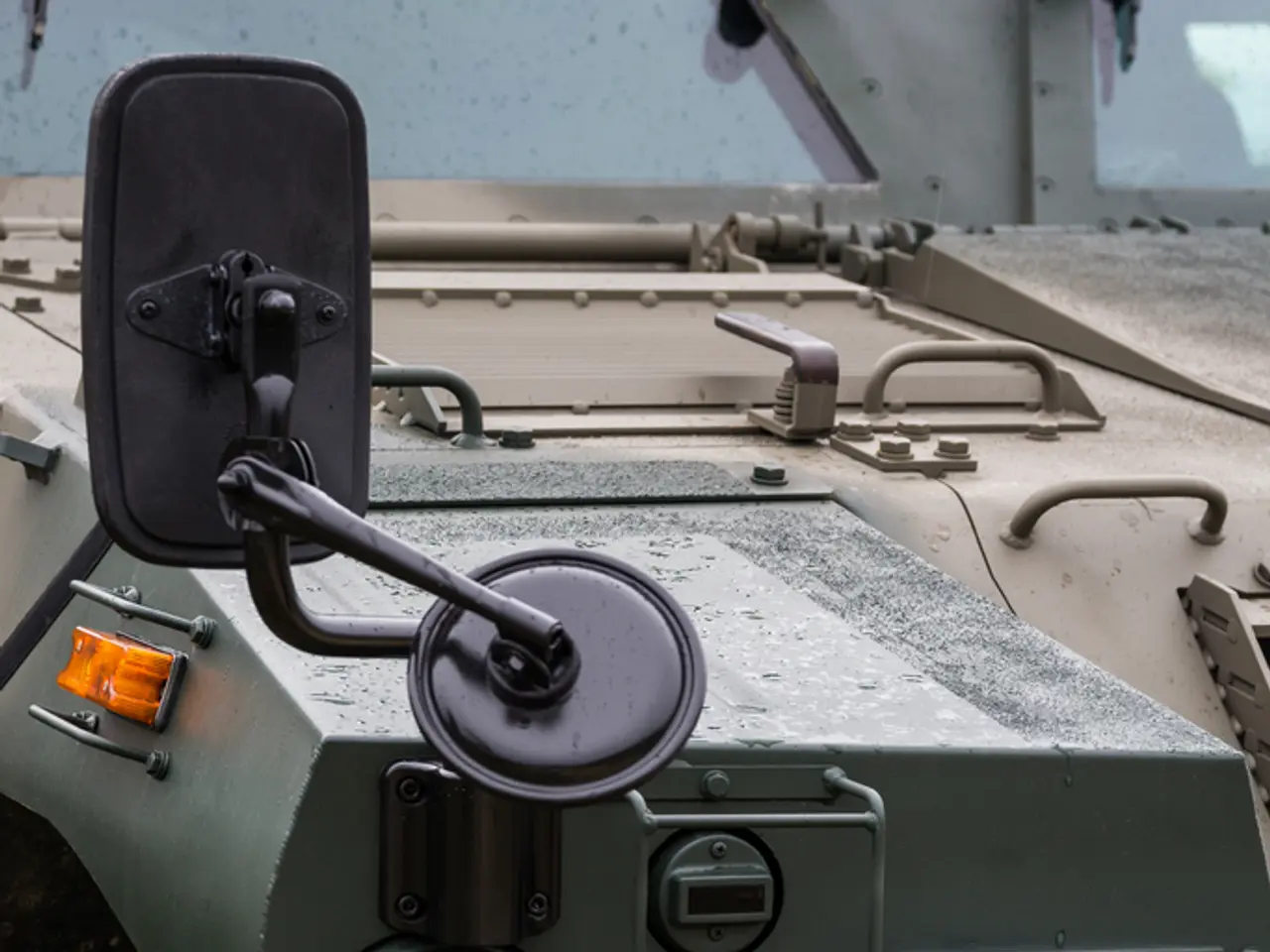Arctos Surpasses $11 Billion in Sports Assets, Unphased by Tariffs
The S&P 500 has experienced a 8.3% decrease year-to-date, reflecting a broader economic turbulence. Five sports organisations listed on U.S. stock markets, including the Atlanta Braves, Formula 1, Manchester United, Madison Square Garden Sports, and TKO Group, have collectively dropped by 7.6% since the start of the year [1].
Despite this, sports franchises generally have limited direct exposure to Trump-era tariffs on foreign goods. The primary impact of tariffs is on imported consumer products and manufacturing inputs, not services or local entertainment businesses like sports teams [1]. However, indirect effects through supply chains and consumer demand shifts may pose challenges.
For instance, the increased costs and supply-chain disruptions could affect sports franchises indirectly through higher operational costs or increased prices for licensed merchandise sold to fans. Companies producing sports merchandise and apparel might encounter cost pressures that could affect retail pricing and inventory strategies [1].
Sports franchises often demonstrate resilience during downturns. They can rely on loyal fan bases and diversified revenue streams like broadcasting rights, sponsorships, and local ticket sales, which are less directly tied to import tariffs or international trade fluctuations. Yet, an economic downturn triggered or worsened by tariffs might reduce consumer discretionary spending, potentially dampening attendance and merchandise sales [1].
One example of resilience is the NFL's media deals, which run through 2033, and the NHL's Canadian broadcasting rights, inked through 2038 with Rogers Corp [2]. The Boston Celtics have also been sold for a record-breaking $6.1 billion [2]. Sports teams in MLB, NBA, NFL, and NHL have sustained their values through past economic downturns, including the dotcom bust, mortgage crisis, and the pandemic.
Canadian franchises face the problem of exchange rates affecting business, especially if the U.S. dollar strengthens, which would marginally erode profitability of Canadian teams [1]. The long-term nature of media rights, sponsorships, and stadium naming deals gives the industry plenty of financial cushion to ride out short-term turmoil [1].
Arctos Sports Partners, likely the largest institutional investor in North American sports, has been a significant player in this market. Through its funds, Arctos has recently acquired ownership of the Buffalo Bills [1]. As of April 2023, Arctos had $3.58 billion in assets, which grew to approximately $7 billion in April 2024 [1][3]. Arctos Sports Partners had $11.3 billion in sports-related funds as of 2025, with another $2.7 billion in a separate strategy [3].
Arctos Partners has stated that sports franchises are well-shielded from tariff volatility due to minimal tariff exposure and long-term, contracted revenues [4]. Sports team values, as measured by RAFSI, a proprietary index of team values created by Arctos and the University of Michigan, grew more than 7% in each of the first two economic shocks of this century [5]. The growth in Arctos' sports-related assets may be due to new fundraising, with existing funds showing growth between 12% and 15% over two years, or 6% to 7.5% annually [5].
In conclusion, while the direct impact of tariffs on sports franchises is limited, indirect effects through supply chains and consumer demand shifts may pose challenges. Franchises may show relative resilience compared to other businesses heavily dependent on imported goods, but they are not immune to the macroeconomic environment shaped by tariff policies [1][2].
References: [1] "Tariffs and Sports Franchises: An Analysis of Potential Impacts" (2021) Arctos Sports Partners [2] "Sports Franchise Valuations in a Downturn: Insights and Trends" (2022) Arctos Sports Partners [3] "Arctos Sports Partners Announces Fundraising Success" (2024) Arctos Sports Partners [4] "Arctos Sports Partners on Tariff Volatility and Sports Franchises" (2023) Arctos Sports Partners [5] "The Growth of Arctos Sports Partners: An Examination of Asset Expansion" (2025) Arctos Sports Partners
- The collective bargaining agreements between sports teams and players, as well as the long-term media rights and sponsorship deals, serve as financial cushions for sports franchises, helping them withstand the indirect effects of tariffs and economic turbulence.
- In the realm of sports business, finance plays a crucial role, with institutions like Arctos Sports Partners demonstrating confidence in the resilience of sports franchises, despite potential challenges posed by tariffs and supply chain disruptions.




